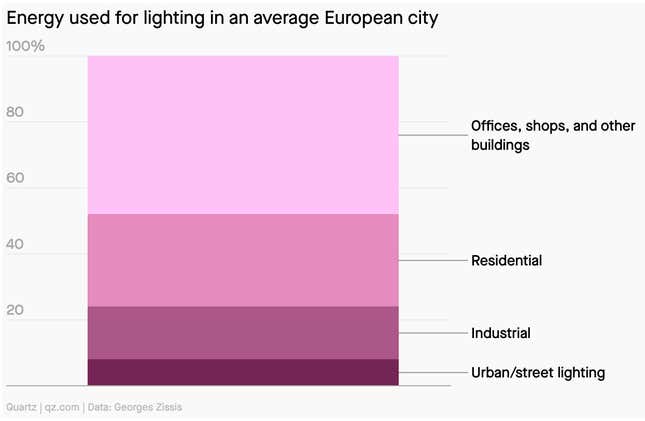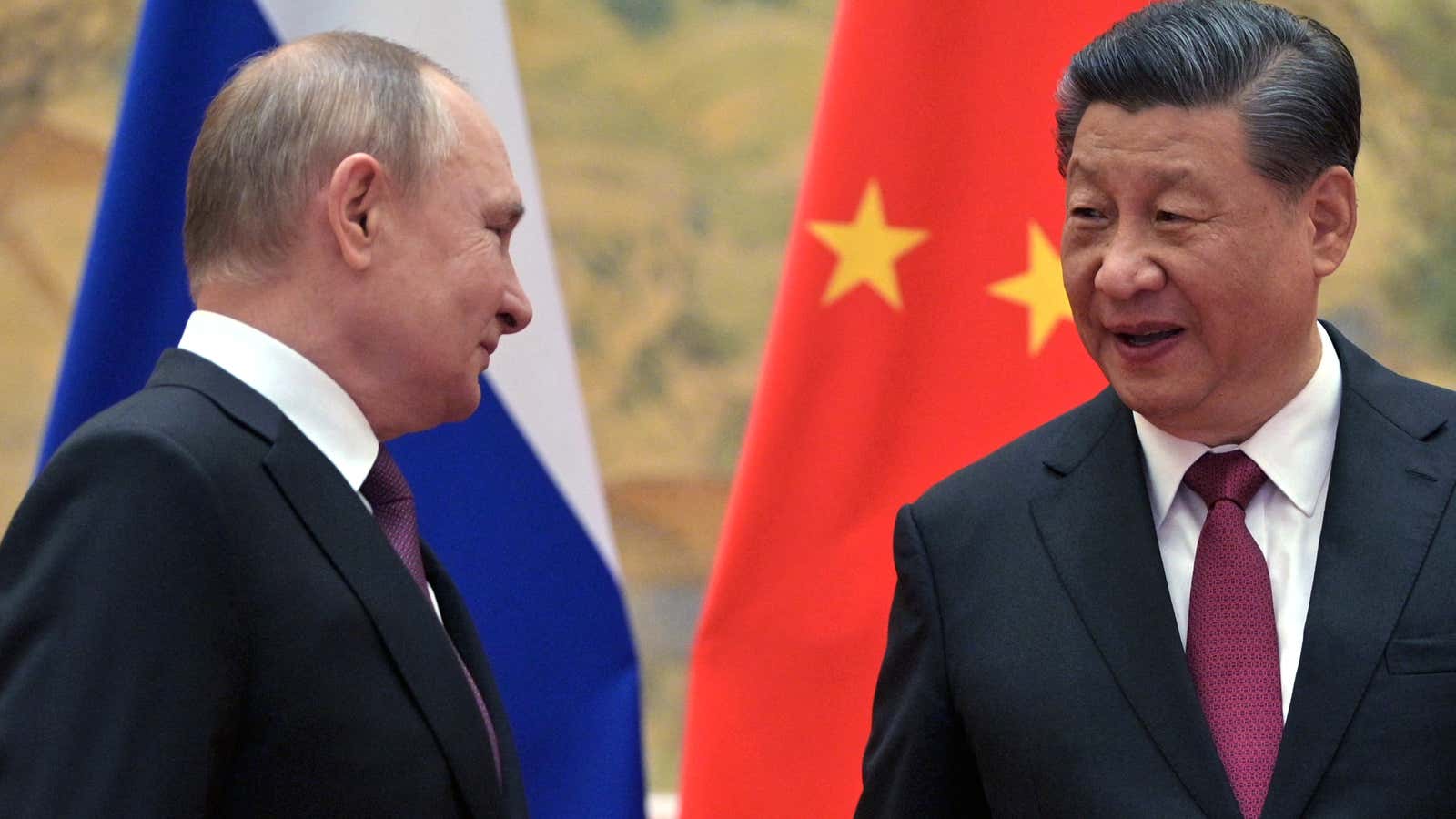Good morning, Quartz readers!
Here’s what you need to know
Xi Jinping and Vladimir Putin are meeting in Uzbekistan this week. The presidents of China and Russia, respectively, are convening with other global powers in Samarkand for the Shanghai Cooperation Organization summit (more below).
Antigua and Barbuda will vote on whether to remove King Charles III as head of state. The referendum could come in the next three years. Meanwhile, Queen Elizabeth’s coffin arrived in Edinburgh, one of several stops ahead of the funeral scheduled for Sept. 19.
Ukrainian forces made gains against Russia. Ukraine’s military chief said the country recaptured more than 1,000 square miles in the Kharkiv region and drove out Russian units.
Five speech therapists were charged with sedition in Hong Kong. They face 19 months in jail for publishing alleged pro-democracy children’s books that Beijing claimed were destabilizing.
An Indian journalist got bail after two years. Siddique Kappan was arrested while covering the gang rape and killing of a Dalit teenager in Uttar Pradesh.
The UN chief urged financial support for Pakistan. Secretary-general António Guterres visited areas hit hard by record flooding that killed nearly 1,400 people.
Five EU countries are moving ahead with a minimum tax. France, Germany, the Netherlands, Italy, and Spain want to implement the 15% fee on big companies as quickly as next year.
What to watch for
President Xi Jinping has not left China since the outbreak of covid in 2020, barring a visit to the semi-autonomous Hong Kong earlier this year. Foreign policy buffs and journalists alike have made several guesses as to where he will head first, but none have hit the mark.
In August, it was reported that Xi would visit Saudi Arabia, but the trip never materialized. There were also reports that he would travel to Southeast Asia in November to meet with US president Joe Biden. But now Xi will reportedly meet with Russian president Vladimir Putin this week in Uzbekistan. Should the trip materialize, it would mark a strengthening of relations between the two countries as their ties with the US remain strained.
Xi is undoubtedly seeking to be prudent about the timing and optics of this much-anticipated trip overseas, as it will broadcast his diplomatic priorities.
Time for Europe to turn off the lights
In preparation for a winter without Russian gas, European countries are looking to stock up as much fuel as possible. Some companies and governments are also enforcing a step that should have long been a no-brainer: turning off lights when they’re not in use.
That habit is ingrained in poorer countries, where people and companies keep close tabs on their electricity bills. But it is long overdue for wealthy countries that have been accustomed to keeping office and street lights on all night, no matter the financial or environmental costs.

In a typical European city, office and commercial buildings use about half of lighting-related energy. A simple cost- (and carbon-) saving solution would be switching to smart lighting systems that automatically turn on and off when needed. Until then, staying warm in the winter will mean letting the nights grow darker.
Is “quiet quitting” actually a problem?
“Quiet quitting,” or doing the bare minimum that’s in your job duties without going above and beyond, is causing a lot of hand-wringing and hot takes among employers.
Companies and managers are rightfully worried about keeping worker engagement high, as it’s linked to greater productivity. But for workers, quiet quitting doesn’t necessarily mean that they’re spending eight hours a day feeling miserable or checked out. Rather, they’re not subscribing to the mentality that work has to rule one’s life.
✦ Love keeping up with trends affecting the workplace? Quartz stories like these are free and accessible to all thanks to our members. Sign up for a membership today and get 40% off.
Quartz’s most popular
💵 The US dollar is decimating world currencies
🚨 The head of the SEC says most cryptocurrencies are operating illegally
🚃 New York City transportation data shows the return-to-office struggle is real
🎬 Netflix will pause filming of The Crown
👑 A royal historian explains the legacy of Queen Elizabeth II
🐟 An obscure UN agency okayed the first industrial sea floor mining project
Surprising discoveries
Archeologists found the oldest evidence of amputation. It was a 31,000-year-old body of a young person whose leg had been surgically removed.
The Eiffel Tower may go dark. Well, just an hour earlier than usual, in an effort to conserve energy.
There’s one molecule in the brain that categorizes memories as positive or negative. Understanding neurotensin could help us decode anxiety and addiction.
Hendrick’s Gin rescued a cucumber from extinction. It’s all in the name of capitalism, not conservation.
Pumpkin spice made it into the Merriam-Webster dictionary. Other new additions this month include shrinkflation, subvariant, and ICYMI.
Our best wishes for a productive day. Send any news, comments, rare cucumbers, and new words to [email protected]. Reader support makes Quartz available to all—become a member. Today’s Daily Brief was brought to you by Sofia Lotto Persio, Julia Malleck, and Morgan Haefner.
